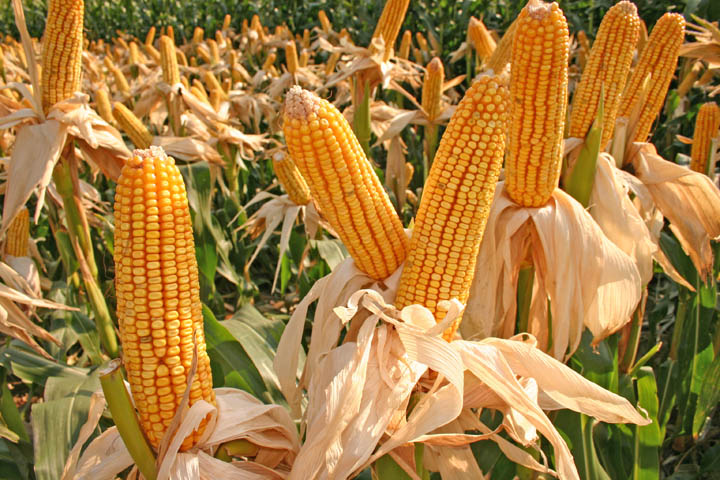
Corn a common denominator in fuel, meat prices
It's not just the cost of transportation that can affect meat prices. Fuel-or more accurately, ethanol, plays a part on another level — and it all goes back to corn.Ethanol is made mostly from corn in the United States, and more than one-third of the country's corn crop goes into making it. The USDA projects a greater percentage of the corn crop will go toward ethanol production in the next few years.
December 8, 2010

It's not just the cost of transportation that can affect meat prices. Fuel-or more accurately, ethanol, plays a part on another level, according to a University of Kentucky agricultural economist. And it all goes back to corn.
Ethanol is made mostly from corn in the United States, and more than one-third of the country's corn crop goes into making it, said Professor Lee Meyer, from the UK College of Agriculture's Department of Agricultural Economics. The U.S. Department of Agriculture projects a greater percentage of the corn crop will go toward ethanol production in the next few years.
"Though corn production is on an upward trend, production has not increased nearly as quickly as the use of corn for fuel," Meyer said. "Something has to give. That means less corn is going to be used for feeding livestock."
Corn is the primary feed for chicken and hogs, and it is often used for the last stage of feeding cattle. Its price has increased by approximately 40 percent in 2010. As feed prices go up, livestock producers try to cut back. Because of this, Meyer predicts U.S. farmers will produce less meat for the next several years.
Consumers might not notice less meat being sold, but they are likely to notice the higher prices. Retail meat prices are at or near record levels. The average retail price of Choice beef is about $4.50 per pound, up 4 percent from last year. Pork is at a record high of $3.40 per pound. Chicken prices are less than $1.80 per pound, but are likely to increase over the coming year.
"It's all about the reality of a simple balance sheet," he said. "We are going to pay for our corn-based ethanol by having less meat and paying higher prices for it."
You May Also Like



